Table of Contents
Introduction
Have you ever wondered about the boundless potential of computing? What if there was a technology that could revolutionize the way we process information, making today’s most powerful supercomputers seem feeble in comparison?
Welcome to the fascinating world of Quantum Computing, where the laws of classical physics bend, and the future of computation takes a mind-bending leap.

One of the most important figures in Quantum Computing who set the stage for much of the interest in developing Quantum Algorithms to exploit Quantum Physics.
The algorithm co-named with Jozsa, known as the Deutsch-Jozsa algorithm, is a seminal breakthrough that demonstrated the first principles of Quantum advantage.
- Quantum Computers, thanks to this algorithm, possess the capability to perform certain calculations much faster than classical or normal hardware ever could.
- In 1985, David Deutsch conceived the idea, which later became the Deutsch-Jozsa algorithm. Subsequently, other algorithms, such as Grover’s and Shor’s, also showcased their ability to achieve significant speed-ups.
- Shor’s algorithm, in particular, caused immense excitement as it could potentially undermine security protocols reliant on public-key encryption by easily factoring large numbers.
- David Deutsch’s contributions sparked interest in the field, leading to further advancements.
- The quest continues to discover more algorithms that can offer quantum speed-up over classical methods.
What is Quantum Computing
Quantum computing is a revolutionary field at the intersection of physics, mathematics, and computer science that harnesses the principles of quantum mechanics to process information in ways that defy classical computing paradigms.
Unlike classical computers, which rely on bits representing either 0 or 1, quantum computers leverage quantum bits or qubits that can exist in multiple states simultaneously, thanks to the phenomenon of superposition.
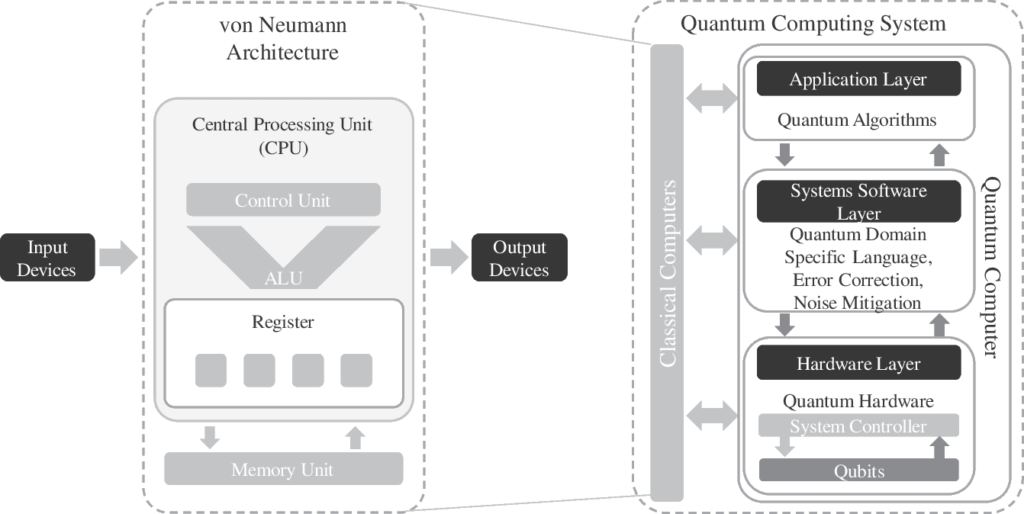
This unique property allows quantum computers to perform certain calculations exponentially faster than their classical counterparts, promising groundbreaking advancements in various domains, including cryptography, optimization, material science, and drug discovery.
As the race to build practical quantum computers accelerates, researchers and industry leaders are eagerly exploring the immense potential of this technology while grappling with the challenges posed by quantum decoherence and error correction. The world of quantum computing opens up possibilities that once seemed like science fiction, paving the way for a new era of computation and innovation.
Key Stats
- The global quantum computing market was valued at USD 89 million in 2016 and is projected to reach USD 949 million by 2025, growing at a CAGR of 30% from 2017 to 2025.
- The US government, European Union & China are investing heavily in quantum computing research.
- The largest quantum computer in the world is the Sycamore quantum computer, which was built by Google in 2019.
- By 2030, the number of quantum computers worldwide could be between 2,000 and 5,000.
- IBM developed a 53-qubit quantum computer in 2019.
- The operating temperature of the D-Wave 2000Q quantum computer is 0.015 Kelvin
Quantum Computing and AI
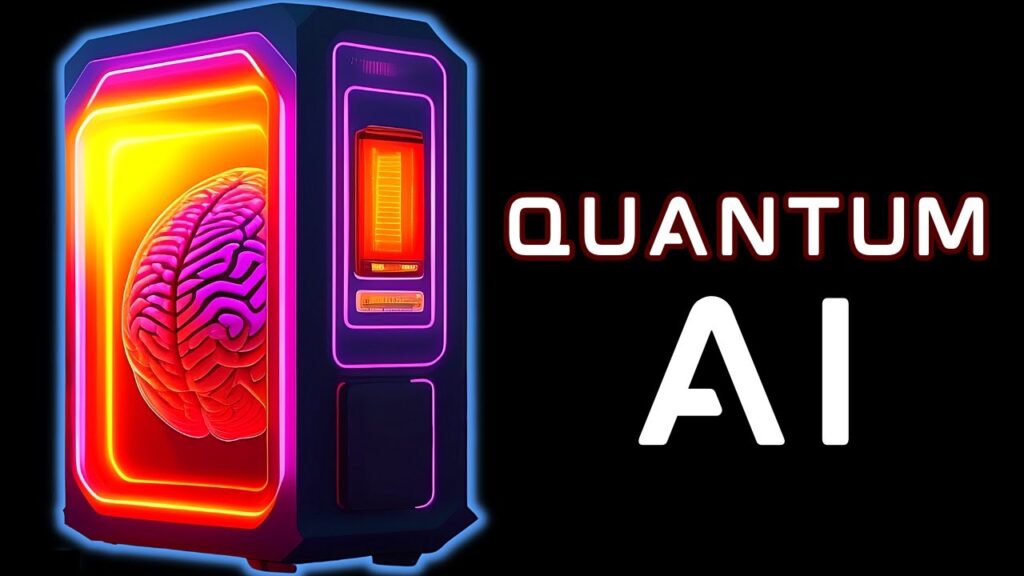
Quantum computing and artificial intelligence (AI) are two rapidly evolving fields that have the potential to revolutionize various industries and scientific disciplines. Their intersection holds promise for solving complex problems that are currently intractable for classical computers and enhancing the capabilities of AI systems. Here are some potential applications of quantum computing in the field of artificial intelligence:
Resolve Complex Problems in a Short Period
Data sets are becoming increasingly complex and larger than what our current computers can handle, putting significant pressure on our computing architecture. Today’s computers are incapable of solving complex problems that can be easily tackled by quantum computing, which is expected to resolve these challenges in mere seconds.
With Quantum Supremacy (the ability of a quantum computer), which Google claimed to have achieved in 2019 (a claim disputed by IBM), computations that typically take thousands of years can now be accomplished in just 200 seconds.
Managing Large Datasets
Every day, we generate approximately 2.5 exabytes of data. Ordinary CPUs and GPUs are unable to handle such a large amount of data, whereas quantum computers are designed to quickly identify patterns and anomalies based on this massive amount of data.
Detecting and Combating Fraud
As quantum computing and artificial intelligence are applied to the banking and financial industries, fraud detection will be improved and enhanced. In addition to the ability to recognize patterns difficult to detect with traditional equipment, models trained on quantum computers would also be able to handle the large amount of data that these machines could handle. Advancements in algorithms would assist in achieving this goal as well.
Developing Better Models
In this era of growing data volumes, companies are no longer limited by traditional computer technologies to analyze complex scenarios. These businesses require sophisticated models that can analyze all types of scenarios.
It is estimated that by 2025, the healthcare industry’s data generation will grow at a compound annual rate of 36%, which is 6% faster than manufacturing, financial services, logistics, and eCommerce. By using quantum technology to develop better models, we may be able to treat illnesses more effectively, reduce the risk of financial collapse, and improve coordination.
Quantum computers have demonstrated success in accelerating DNA sequencing in the medical field and accurately predicting traffic volumes in transportation. Quantum computing is expected to play a crucial role in advancing our understanding of biology and evolution, enabling more effective treatments for diseases such as cancer, and even aiding in mitigating the effects of climate change
Importance of Quantum Computers
Quantum computers are important for several reasons, as they represent a paradigm shift in computing with the potential to revolutionize various aspects of technology and science. Here are some key reasons why quantum computers are considered important:
- Exponential Computational Power: Quantum computers have the ability to perform certain types of calculations at exponentially faster rates than classical computers. They leverage quantum principles, such as superposition and entanglement, to process vast amounts of information simultaneously.
- Solving Intractable Problems: Quantum computers excel at tackling problems in areas such as cryptography, optimization, drug discovery, and material science that involve complex computations and huge datasets. For example, they can efficiently factor large numbers, threatening the security of traditional cryptographic systems, or simulate the behavior of molecules to accelerate drug discovery processes.
- Quantum Cryptography and Security: Quantum computers play a unique role in the field of quantum cryptography, offering methods to secure data communication and protect against hacking attempts. Quantum key distribution (QKD) ensures unconditional security, as any eavesdropping attempts would disturb the quantum state, making it detectable.
- Artificial Intelligence and Machine Learning: Quantum computing has the potential to accelerate various machine learning algorithms and enhance pattern recognition tasks. It could lead to advancements in fields like natural language processing, image recognition, and data analysis, among others.
- Quantum Simulation: Quantum computers can simulate quantum systems much more efficiently than classical computers. This capability enables researchers to study complex quantum phenomena, leading to advancements in materials science, chemical reactions, and fundamental physics.
- Advancing Scientific Research: Quantum computing has the potential to revolutionize scientific research across disciplines, including physics, chemistry, biology, and materials science. It could lead to breakthroughs in understanding fundamental processes and designing new materials with specific properties.
Despite their enormous potential, it’s important to note that quantum computers are still in the early stages of development, and several challenges need to be overcome before they can be widely adopted. Nevertheless, their importance lies in their ability to drive innovation, solve problems previously thought unsolvable, and create new opportunities for scientific advancement and technological progress. As research and development in quantum computing continue, we can expect to witness its transformative impact across various domains in the coming years.
How Do Quantum Computers Work?
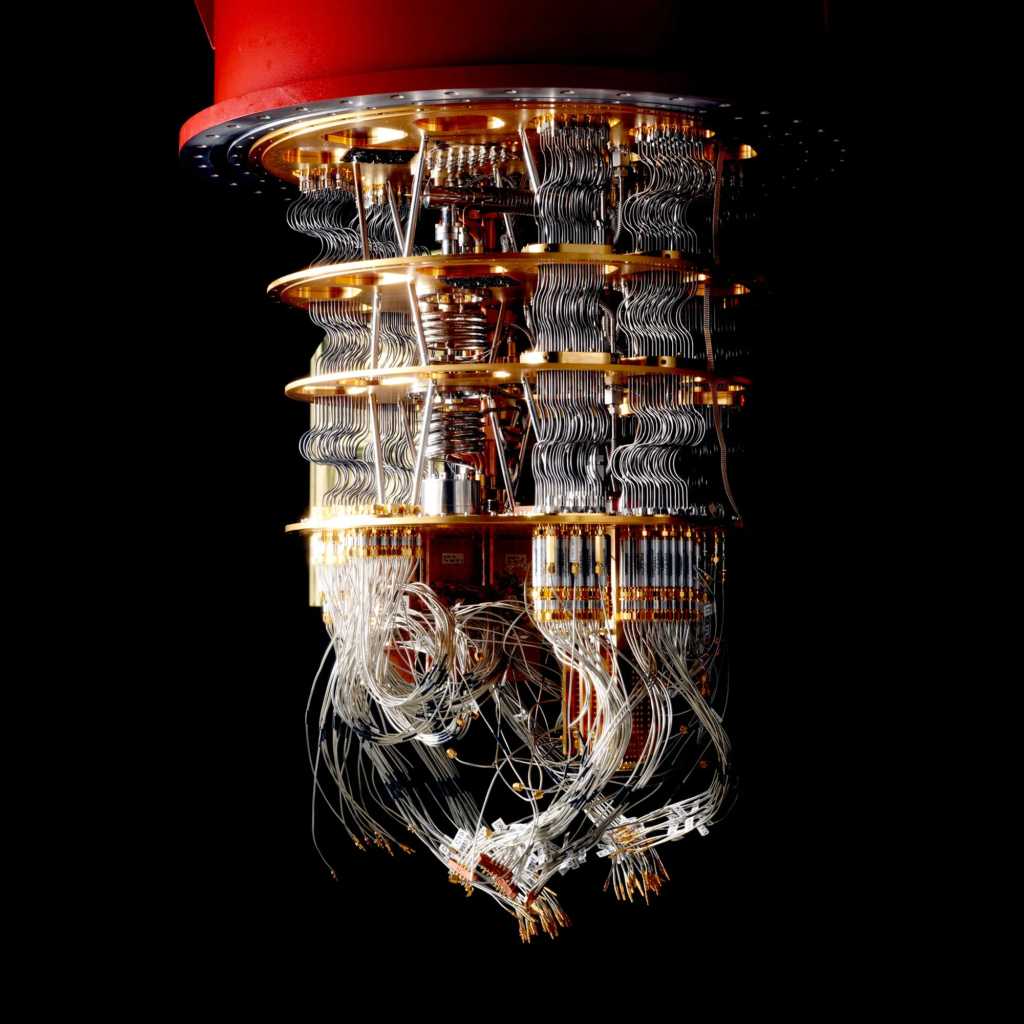
In regular computers, data is stored in bits, which can be either 0 or 1. These bits are like tiny switches that control how the computer processes information. But in quantum computers, they use quantum bits, also called qubits.
Qubits are special because they can be 0, 1, or both 0 and 1 at the same time! This is called “superposition.” It’s like having a spinning top that is spinning both clockwise and counterclockwise simultaneously. This allows quantum computers to perform many calculations at once, making them incredibly fast for certain tasks.
Another cool thing about qubits is “entanglement.” When qubits are entangled, the state of one qubit is instantly connected to the state of another, no matter how far apart they are. It’s like having two magic coins that always show the same side when flipped, even if they are on opposite sides of the world.
To do computations, quantum computers use complex algorithms that take advantage of superposition and entanglement. These algorithms allow quantum computers to solve certain problems much faster than regular computers.
Classical Computing vs. Quantum Computing
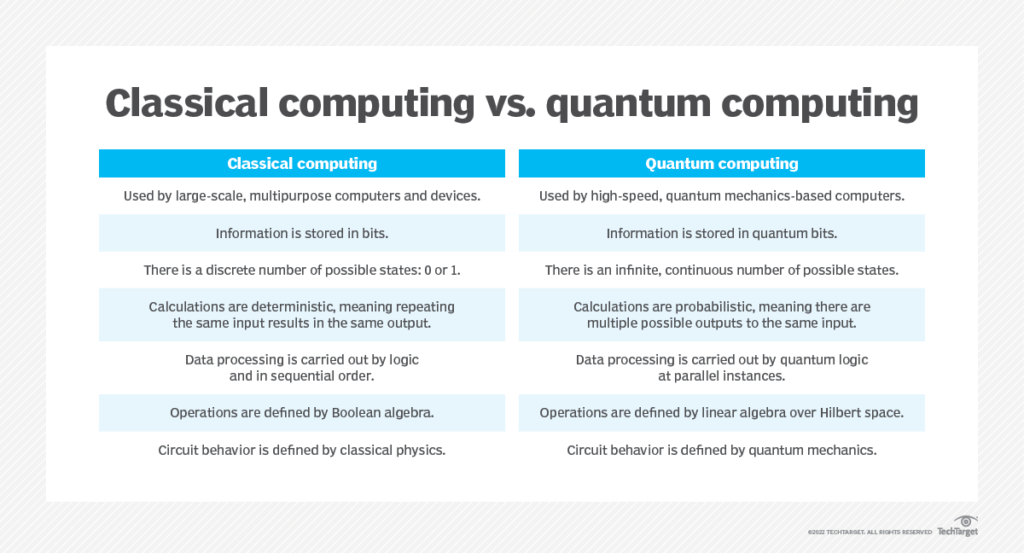
Traditional and quantum computing are two parallel universes with many parallels and many differences, such as the usage of qubits rather than bits. Let’s look at three of the most important:
Programming Language
Quantum computing lacks its own programming language and necessitates the development and implementation of highly specialised algorithms. Traditional computing, on the other hand, has standardised languages such as Java, SQL, and Python, to mention a few.
Functionality
Quantum computers, unlike personal computers (PC), are not meant for widespread, everyday usage. These supercomputers are so complicated that they can only be utilised in business, science, and technology.
Architecture
The architecture of quantum computers is simpler than that of ordinary computers, and they lack memory and processors. The equipment is made up entirely of qubits that allow it to function.
Why Quantum Computers Are Faster
Consider the following example of how quantum computers can succeed where traditional computers fail:
A traditional computer may excel at challenging tasks such as sorting through a large database of molecules. However, it will struggle to address more complex tasks, such as replicating the behavior of those molecules.
Today, if scientists want to know how a molecule will behave, they must first synthesize it and then experiment with it in the real world. If they want to know how a minor change will affect its behavior, they usually need to synthesize the new version and rerun their experiment. This is a costly and time-consuming process that stifles development in sectors ranging from health to semiconductor design.
Operating Conditions Of A Quantum Computer
These computers are incredibly sensitive and require very specific pressure, temperature, and insulating settings to function properly. When these machines interact with external particles, measurement inaccuracies and state overlaps are erased, which is why they are sealed and must be operated with traditional computers.
To prevent atoms from moving, colliding, or interacting with the environment, quantum computers must have nearly no atmospheric pressure, an ambient temperature close to absolute zero (-273°C), and insulation from the earth’s magnetic field. Furthermore, because these devices only run for extremely brief periods of time, the information becomes destroyed and cannot be preserved, making data recovery much more difficult.
Applications Of Quantum Computing in Industry and Research
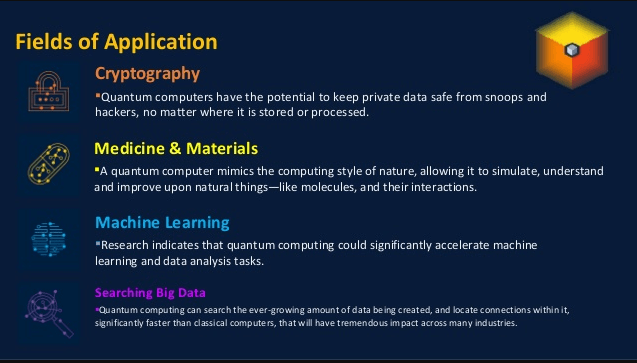
Quantum computing holds the potential to revolutionize various industries and research fields due to its ability to solve complex problems more efficiently than classical computers. While we are still in the early stages of quantum computing development, there are several promising applications in various domains:
Cryptography and Security
Quantum computers could break many of the cryptographic methods currently used to secure data, but they also offer new methods for secure communication, such as quantum key distribution. This could have a significant impact on industries that rely on secure data transmission, such as finance, healthcare, and government.
Optimization
Quantum computers are well-suited for optimization problems, such as supply chain management, logistics, and resource allocation. They can efficiently search through vast solution spaces to find optimal or near-optimal solutions.
Material Science
Quantum simulations can model the behavior of molecules, materials, and chemical reactions at a quantum level. This could lead to the discovery of new materials with specific properties, accelerating the development of advanced materials for industries like electronics, pharmaceuticals, and energy.
Machine Learning
Quantum computing has the potential to enhance machine learning algorithms by performing tasks like feature selection, optimization, and matrix inversion more efficiently. Quantum machine learning could find applications in data analysis, pattern recognition, and AI development.
Finance
Quantum computing can be used for complex financial modeling, risk assessment, and portfolio optimization. It could enable the development of more accurate models for predicting market behavior and managing financial risks.
Pharmaceuticals and Drug Discovery
Quantum simulations can accurately model molecular interactions, enabling faster and more precise drug discovery processes. This could lead to the development of new medicines and therapies.
Energy and Environmental Modeling
Quantum computing can help optimize energy production and consumption, simulate chemical reactions for clean energy applications, and improve environmental modeling for climate change studies.
Artificial Intelligence:
Quantum computing can accelerate AI training processes by speeding up matrix calculations and optimization tasks, thereby enhancing the capabilities of AI systems.
It’s important to note that while these applications hold significant promise, practical and scalable quantum computers are still in development, and many challenges need to be overcome before these applications can be fully realized. Researchers and industries are actively working on building more powerful and stable quantum systems to unlock the full potential of quantum computing across various domains.
Companies Building Quantum Computers
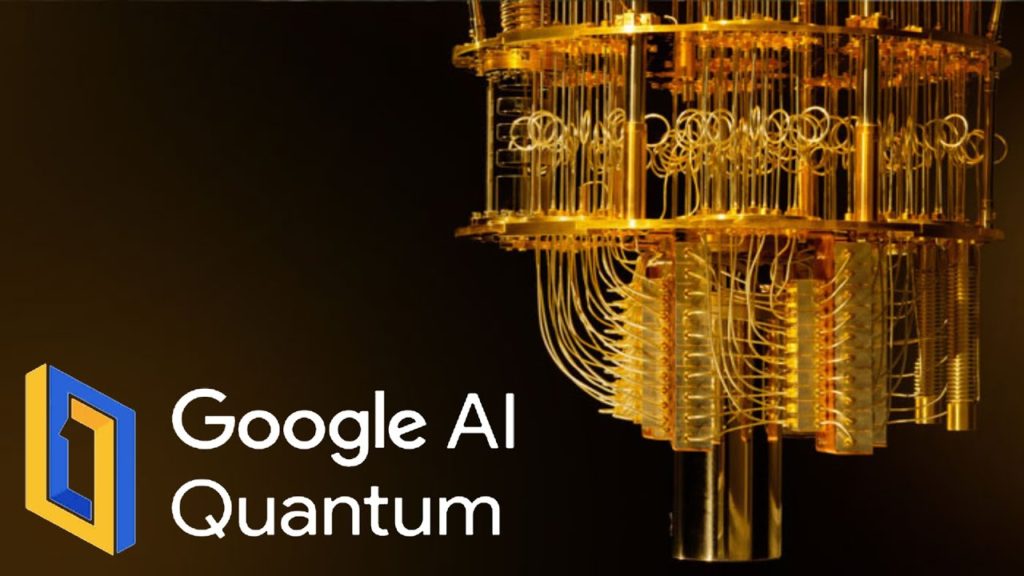
1. Google
Amazon is a more recent player joining the race to build a quantum computer. In 2021, Amazon announced the opening of the AWS Center for Quantum Computing in Pasadena, Calif. It has partnered with the California Institute of Technology to foster the next generation of quantum scientists and fuel their efforts to build a fault-tolerant quantum computer.
In addition to these efforts, Amazon offers a quantum computing service called Amazon Braket, which provides developers access to quantum computers and tools from third-party partners. This service enables customers to speed up their own quantum computing research, build quantum projects and run quantum algorithms.
Since then, Sycamore has been utilized for various purposes such as running chemical simulations and wormhole simulations, among others. Additionally, Google has developed an open-source software stack and a quantum computing service, which provide tools for developing innovative quantum algorithms. The research team at Google continues to drive advancements in quantum computing, focusing on areas such as hardware control systems, quantum control, physics modeling, and quantum error correction.
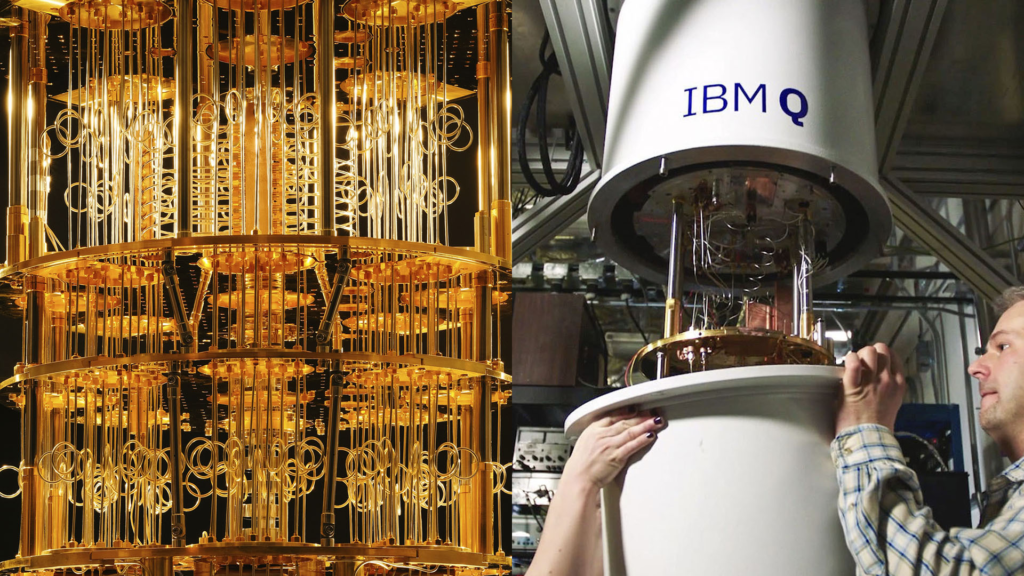
2. IBM
In November 2022, IBM hosted the Quantum Summit, where it revealed a roadmap outlining its plans and timeline for advancing quantum computing until 2025. The main objective is to surpass the use of single processors, aiming to combine multiple chip processors into a new processor called Kookaburra by 2025. Compared to IBM’s latest processor, Osprey, which currently has 433 qubits, the multichip Kookaburra processor is projected to have an impressive 4,158 qubits.
These plans demonstrate IBM’s ambitious goals, but they are backed by a strong track record in quantum development. In 2019, IBM introduced the IBM Quantum System One, a commercial quantum computer. Currently, they are in the process of developing the IBM Quantum System Two to enhance the capabilities of Osprey and future quantum processors.
Apart from hardware advancements, IBM operates a suite of cloud-based quantum systems, granting researchers, organizations, and developers access to a variety of services and resources. These include IBM Quantum Composer, IBM Quantum, and Qiskit, an open-source software development kit (SDK) for quantum computers. The platform offers both public and premium tiers, enabling users to create, test, and execute quantum projects.
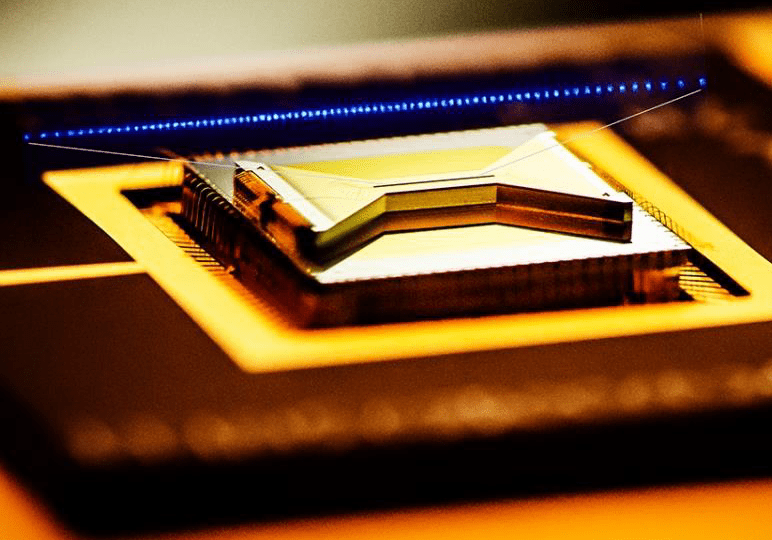
3. IonQ
IonQ employs trapped-ion technology in its quantum computers. Unlike most quantum hardware that utilizes synthetic quantum systems for qubits, IonQ leverages naturally occurring individual atomic ions as the fundamental building blocks of its processing units. These ions are confined within a three-dimensional space, and IonQ employs lasers to facilitate the preparation and execution of computations.
IonQ currently offers three quantum systems: IonQ Harmony, an 11-qubit system that was launched in 2020; IonQ Aria, a 25-qubit system that was launched in 2022; and IonQ Forte, a 32-qubit system that is presently being developed and undergoing beta testing with researchers. All of these systems are based on IonQ’s trapped-ion technology architecture. Harmony and Aria can be accessed through the IonQ Quantum Cloud platform or Amazon Bracket.

4. Microsoft
Microsoft is currently in the process of creating its quantum machine that is scalable and encompasses the entire technology stack. What sets their approach apart is their focus on topological qubits. To support this approach, the Microsoft research team has developed a control chip called Gooseberry, along with a cryo-compute core, both of which play a crucial role in the system.
Essentially, the chip and core work in tandem to maintain a stable cold environment necessary for the quantum stack to effectively send and receive information from each qubit. This is no small feat to accomplish, but if Microsoft succeeds, it will result in a quantum computer that is highly scalable and capable of handling even larger and more complex applications.
While Microsoft is still in the process of developing this hardware, they also offer a range of quantum computers from other hardware providers as part of their Azure Quantum platform. This platform provides an open environment for researchers, businesses, and developers, allowing them to fine-tune algorithms and explore the capabilities of today’s quantum systems.
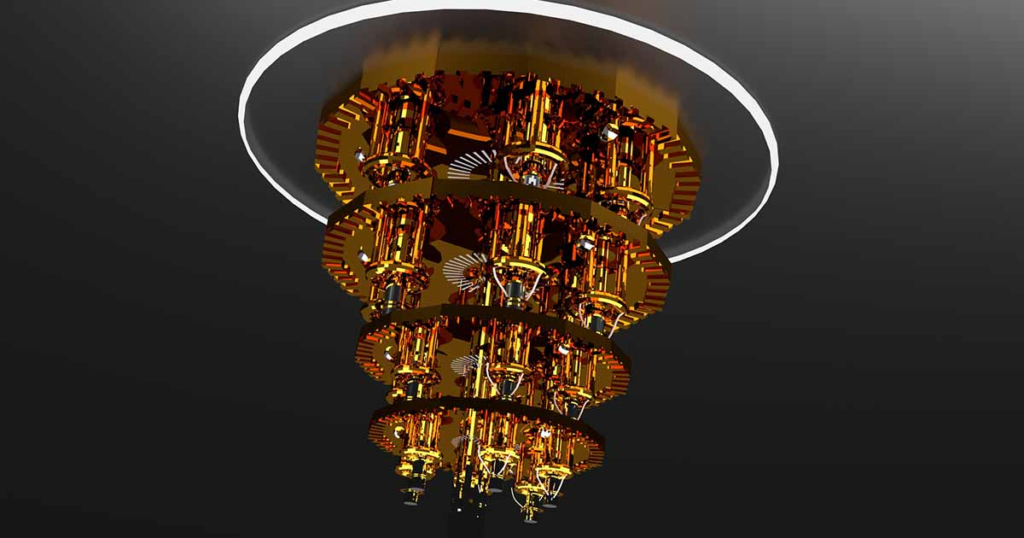
5. Amazon
Amazon has entered the competition to develop a quantum computer, joining the race alongside other companies. In 2021, the company announced the establishment of the AWS Center for Quantum Computing in Pasadena, California. Amazon has formed a partnership with the California Institute of Technology to support the advancement of quantum science and assist in the creation of a reliable quantum computer.
Furthermore, Amazon has introduced a quantum computing service known as Amazon Bracket. This service allows developers to access quantum computers and tools provided by third-party partners. By utilizing Amazon Bracket, customers can accelerate their quantum computing research, undertake quantum projects, and execute quantum algorithms.
Examples of Quantum Computing Software
There are several popular software platforms and libraries for quantum computing, including:
1. Qiskit: An open-source quantum computing framework for writing quantum algorithms and programs. It is developed and maintained by IBM and is available for use on various hardware platforms.

2. ProjectQ: An open-source software framework for quantum computing that allows for the easy development of quantum algorithms using high-level programming languages.

3. PyQuil: A Python library for quantum programming developed by Rigetti Computing. It allows for the execution of quantum programs on various quantum computing hardware platforms.

4. Microsoft Quantum Development Kit: A set of tools and libraries for quantum development on the .NET framework that can be used on various platforms like Windows, Linux, and macOS.

5. Google Cirq: An open-source framework that allows for creating and manipulating quantum circuits. It is used in conjunction with the Google platform and is available on various hardware platforms.

These are some of the popular software platforms, but many other software platforms and libraries are being developed and used in the field of quantum computing.
Quantum Computing Roadmap and Future Prospects
Quantum computing roadmap
The quantum computing roadmap is still being developed, but there are a few key milestones that are thought to be important. These include:
- Building quantum computers with more qubits. The number of qubits is a key measure of the power of a quantum computer. As the number of qubits increases, so does the ability of the computer to solve complex problems.
- Developing better error correction techniques. Quantum computers are susceptible to errors, so it is important to develop techniques to correct these errors. This will help to improve the accuracy of quantum computations.
- Creating more user-friendly software. Quantum computing software is still in its early stages of development. It is important to create software that is easy to use and that can be used to solve real-world problems.
Future prospects of quantum computing
The future prospects of quantum computing are very promising. Quantum computers have the potential to revolutionize many industries, including finance, healthcare, and logistics. For example, quantum computers could be used to develop new drugs and treatments, design new materials and devices, and break current encryption standards.
However, there are still many challenges that need to be overcome before quantum computers become commercially viable. These challenges include:
- Scaling up quantum computers. It is difficult to scale up quantum computers to the number of qubits that will be needed for practical applications.
- Developing better error correction techniques. As mentioned above, quantum computers are susceptible to errors. It is important to develop better error correction techniques to improve the accuracy of quantum computations.
- Creating more user-friendly software. Quantum computing software is still in its early stages of development. It is important to create software that is easy to use and that can be used to solve real-world problems.
- Despite these challenges, the future prospects of quantum computing are very promising. With continued research and development, quantum computers are likely to have a major impact on the world in the years to come.
Here are some specific examples of how quantum computing could be used in the future:
- Finance: Quantum computers could be used to develop new financial trading algorithms that are more efficient and profitable.
- Healthcare: Quantum computers could be used to develop new drugs and treatments, as well as to simulate the behavior of biological systems.
- Logistics: Quantum computers could be used to optimize supply chains and to develop new transportation models.
- Cryptography: Quantum computers could be used to break current encryption standards, which could have a major impact on cybersecurity.
- Artificial intelligence: Quantum computers could be used to develop new forms of artificial intelligence that are more powerful and efficient.
Conclusion
In conclusion, quantum computing is a fascinating and transformative frontier with the potential to revolutionize multiple industries, from cryptography and material discovery to artificial intelligence and communication. Despite being in its early stages, quantum computing has already demonstrated its prowess in solving complex problems beyond classical computers’ capabilities.
Addressing challenges like qubit stability and error correction is essential to unlock its full potential. Researchers and engineers continue to push the boundaries, anticipating a future where quantum machines reshape our understanding of the universe and drive groundbreaking advancements across various fields. Embracing the quantum revolution and fostering international collaboration will be key to realizing the promises of this remarkable technology.
Deepak Wadhwani has over 20 years experience in software/wireless technologies. He has worked with Fortune 500 companies including Intuit, ESRI, Qualcomm, Sprint, Verizon, Vodafone, Nortel, Microsoft and Oracle in over 60 countries. Deepak has worked on Internet marketing projects in San Diego, Los Angeles, Orange Country, Denver, Nashville, Kansas City, New York, San Francisco and Huntsville. Deepak has been a founder of technology Startups for one of the first Cityguides, yellow pages online and web based enterprise solutions. He is an internet marketing and technology expert & co-founder for a San Diego Internet marketing company.



